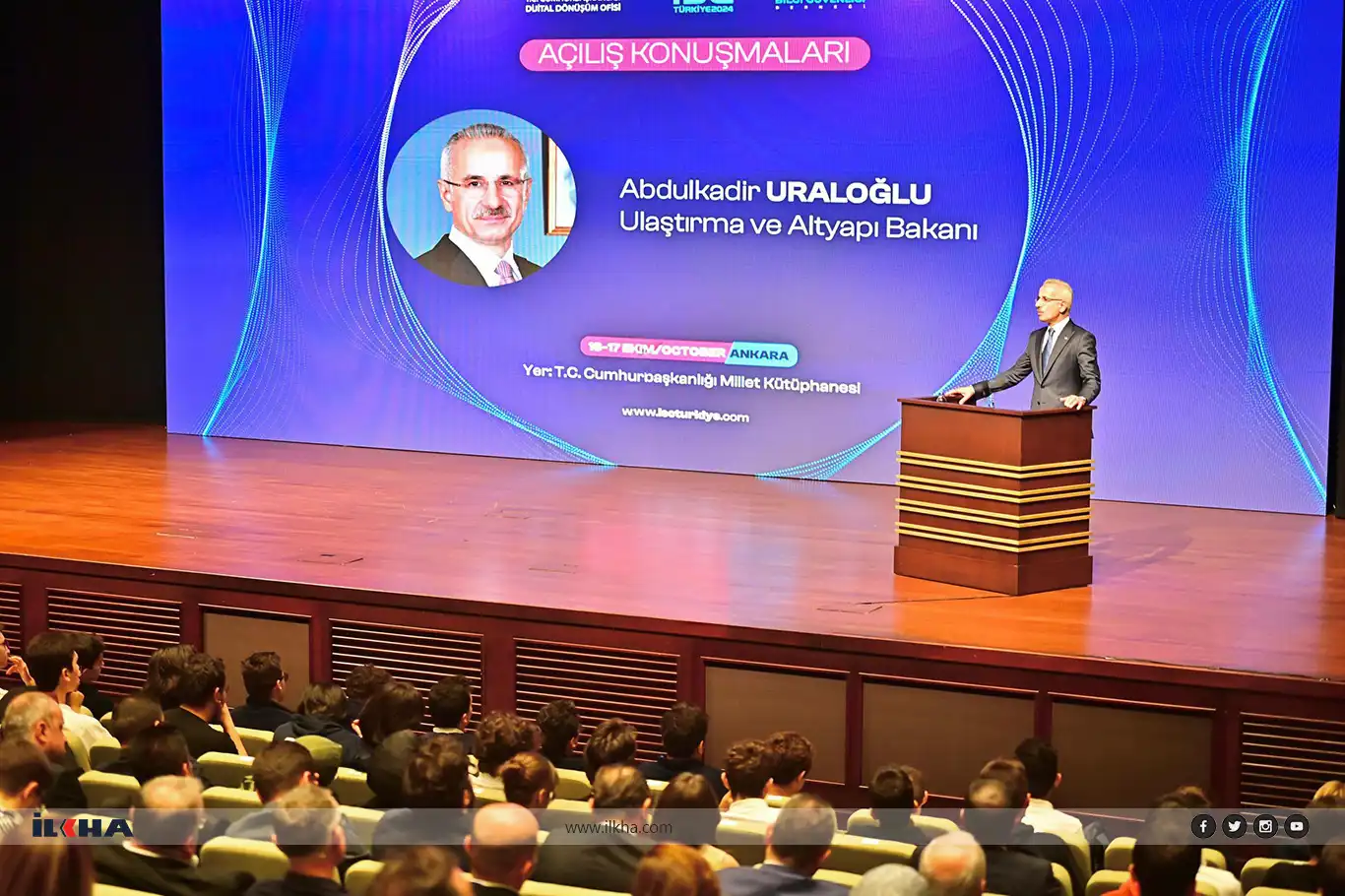Uraloğlu: Social media must not Become a threat to national values


At the 17th International Information Security and Cryptology Conference, Türkiye's Minister of Transport and Infrastructure, Abdulkadir Uraloğlu, delivered a powerful speech addressing the critical importance of cybersecurity and social media governance in today's interconnected world.
Uraloğlu's remarks highlighted the government's commitment to safeguarding national values, protecting citizens, and ensuring the responsible use of digital platforms.
Minister Uraloğlu set the tone by firmly stating that social media, while an essential tool for communication and innovation, must not become a threat to the country’s national and moral values. He stressed that Türkiye supports the continued operation of social media platforms but with clear rules in place to protect society. “Our national and moral values, as well as our family structure, are our most precious assets. We will not allow social media to harm them or to become a threat for anyone,” he said.
This stance comes amid global discussions about the role of social media in shaping public opinion, influencing societal norms, and the responsibilities of governments in regulating digital spaces. Uraloğlu emphasized that social media platforms must comply with Türkiye’s regulations, as they are just as important as any rules established by these platforms. He pointed out recent developments where platforms that had not previously complied with Turkish requirements, such as appointing representatives, have now entered closer cooperation with the country.
The minister also focused on Türkiye’s cybersecurity strategy, underlining the growing importance of protecting digital infrastructure in an era where technology permeates every aspect of life. Uraloğlu revealed that cybersecurity is being ensured through domestically developed tools such as Avcı, Azad, Kasırga, Atmaca, and Kule, showcasing Turkey’s advancements in cyber defense.
Uraloğlu highlighted the profound transformation brought about by the "Internet of Things" (IoT), which has revolutionized daily life. From online banking and e-commerce to automated systems in critical infrastructures, IoT has made everyday processes more efficient but has also introduced new vulnerabilities. "With this new way of life, while classic working, thinking, and entertainment methods are changing, life continues to transition into the electronic environment. However, this brings about new security risks," he stated, underscoring the dual-edged nature of digital progress.
A key theme of the conference was the concepts of cyber resilience and maturity, which Uraloğlu identified as top priorities for institutions and businesses. Cyber resilience refers to the ability to resist and recover quickly from cyberattacks, while cyber maturity reflects how effectively an organization manages its cybersecurity processes. The minister emphasized that these cannot be achieved through technology alone but must be integrated into the very fabric of organizations, supported by increasing awareness among employees. “Cyber resilience and maturity cannot be achieved solely through a technology-focused approach. These concepts must be integrated into the entire structure of the organization,” Uraloğlu stated.
In one of the most striking parts of his speech, Uraloğlu declared that "wars have taken their place in the cyber world." He illustrated how cyberattacks now pose significant threats to national security, capable of paralyzing entire sectors, from financial systems to critical infrastructure. He pointed to recent incidents, such as cyber-terrorist attacks in Lebanon and threats from foreign sources, as stark reminders of the risks that all nations face in this new digital battlefield.
In response to these growing threats, Türkiye has bolstered its cybersecurity defenses through the National Cyber Incident Response Center (USOM), part of the Information Technologies and Communications Authority (BTK). Uraloğlu announced that, through USOM, Türkiye had detected and blocked over 97,000 malicious links in 2024 alone, protecting the country's digital borders. Additionally, USOM issued more than 12,000 cybersecurity notifications to relevant institutions, ensuring that appropriate measures were taken to prevent further threats.
The minister highlighted the collaborative nature of Türkiye’s cybersecurity efforts, emphasizing partnerships at both the national and international levels. Sectoral Cyber Incident Response Teams (SOME) have been established in critical sectors, and corporate SOMEs have been formed within institutions to fortify the nation’s cyber defenses. With 7,873 cybersecurity experts across 14 sectoral and 2,304 corporate SOMEs, Turkey is building a robust system to safeguard its digital infrastructure.
Minister Uraloğlu’s speech reflected Türkiye’s proactive approach to managing the complex challenges of the digital age. As the country embraces technological innovation, it is equally committed to protecting its national identity and security. By fostering a balance between open digital engagement and stringent cybersecurity measures, Türkiye aims to navigate the evolving digital landscape without compromising its core values.
In an era where digital threats are as real as physical ones, Uraloğlu’s vision for a secure, resilient, and values-driven digital future underscores the importance of national policies that both protect and promote responsible technological use. (ILKHA)
LEGAL WARNING: All rights of the published news, photos and videos are reserved by İlke Haber Ajansı Basın Yayın San. Trade A.Ş. Under no circumstances can all or part of the news, photos and videos be used without a written contract or subscription.
Iceland has announced a comprehensive national pilot program that will provide hundreds of its teachers with access to advanced artificial intelligence to assist with lesson planning, administrative tasks, and creating customized classroom materials.
French prosecutors have launched a criminal investigation into TikTok following allegations that the social media platform promotes suicide-related content and that its algorithms may endanger vulnerable young users by amplifying such material.
The United States and China have reached an agreement allowing the popular social media platform TikTok to continue operating in the American market under new ownership conditions.
U.S. President Donald Trump has again nominated billionaire entrepreneur and private astronaut Jared Isaacman to serve as Administrator of NASA, a move that reignites debates over political favoritism, corporate influence, and the future direction of America’s space program.